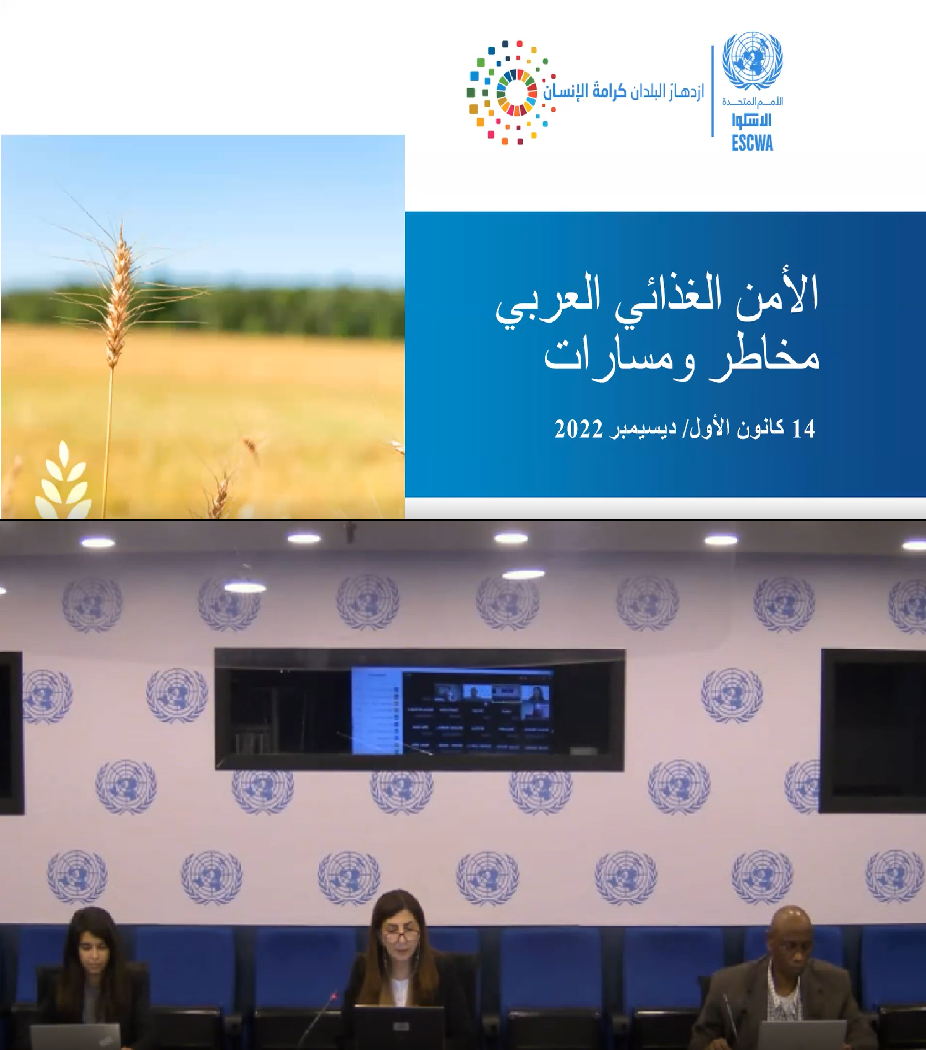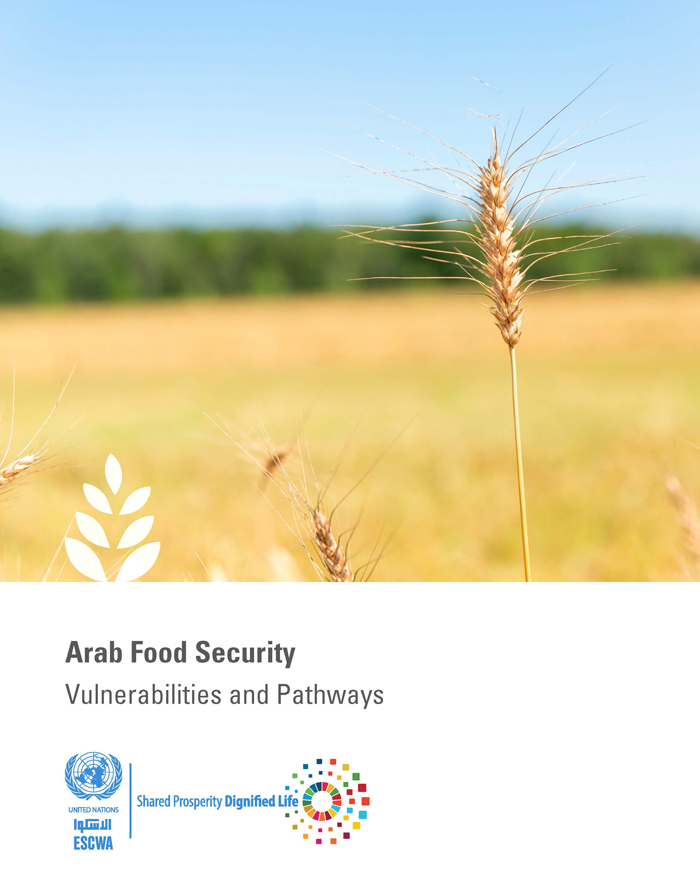Presentation 1: It reviewed the major vulnerabilities facing the Arab region as outlined in the 2020 publication entitled “Arab Food Security: Vulnerabilities and Pathways” building on the Arab Food Security Monitoring Framework. Food insecurity is a high concern as seen through the 3 core indicators of the framework with many of the 21 explanatory indicators showing poor performance as well. It also noted that the region’s natural resource scarcity is increasing with the impact of climate change on the rise. The pandemic had a negative effect on the food availability due to the measures taken by countries to overcome its impact.
Presentation 2: It overviewed a few key takeaways as related to the complexity of ensuring food security and the role of well-functioning food systems. It then outlined a few broad recommendations related to building resilience, strengthening the food security base, and addressing overarching issues such as macroeconomic difficulties, conflicts, and the need for greater regional integration. It noted that substantial subsidies are being spent in the region which constrains public budgets while they could be harnessed to finance food security and the SDGs for greater impact. Two questions for further discussion were suggested, which related to the likely evolution of the food security status over the next couple of years and the kind of policies that are needed to address food security in the short-, medium- and long-run.
Presentation 3: It provided an overview of the Arab Program for Sustainable Food Security, which has 8 components distributed over 3 levels: boosting food production, investments and enhancing nature to improve food security. It also outlines specific goals and targets that cover many aspects encouraging national investments to diversify food consumption. The program is expected to be implemented through 2 consecutive phases from 2021-2025 and from 2026 to 2030.

